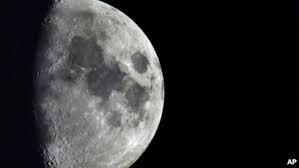
In a pioneering endeavor, the European Space Agency (ESA) has unveiled an ambitious plan to replicate the Moon’s surface on Earth. The initiative, showcased in a captivating video shared on ESA’s social media platforms, involves collaboration with a Greenlandic mine to acquire terrestrial rock samples resembling the lunar material.
To achieve this, a team of ESA experts from the UK and Germany partnered with a mine in Greenland to obtain anorthosite, an igneous, light-colored rock with properties akin to those found on the Moon. The ESA video detailed the mission, stating, “Some of our experts from the LUNA and VULCAN facilities recently travelled to Greenland to start a collaboration with a mine that will provide us with anorthosite.”
The primary objective of this project is to create environments that mirror the Moon’s surface, serving as training grounds for astronauts slated for lunar missions. ESA envisions a comprehensive simulation of lunar surface activities, offering astronauts a firsthand experience in preparation for potential Moon exploration.
Furthermore, these replicated lunar environments will serve as testing grounds for the development of groundbreaking technologies. ESA aims to explore new methods, including utilizing local lunar materials to generate oxygen, water, and building materials.
The European Space Agency disclosed plans to construct two testbeds at their European Astronaut Centre. One will simulate the lunar mare regions and extensive lava plains, while the other will replicate a dusty lunar highland using approximately 20 tonnes of anorthosite.
Social media reactions to the video reflected a mix of awe and curiosity. Users acknowledged the challenge of simulating the Moon’s unique regolith and gravity on Earth for training purposes. Some expressed enthusiasm about witnessing the project, even if they were not astronauts, showcasing the public’s interest in space exploration.
As an international organization with 22 member states, ESA’s mission extends beyond replicating lunar surfaces. It is dedicated to advancing Europe’s space capabilities, conducting research about Earth, our Solar System, and the Universe, developing satellite-based technologies, and promoting European industries.
Sources By Agencies


